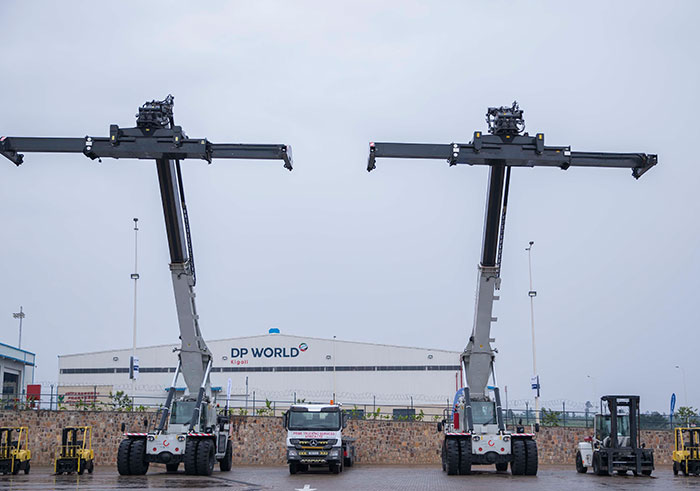The government of Rwanda has officially inaugurated the Kigali Logistics Platform, Rwanda’s largest inland cargo handling facility and the second of its kind in the entire African continent.
The close to US $35m port was constructed by DP World, a global trade enabler based in the United Arab Emirates, under a 25-year concession agreement signed back in 2016 with the government of Rwanda.
Kigali Logistics Platform has been operating in test mode since September last year. It has so far reduced truck turnaround time from an average of 10 to 14 days to three days.
Also Read: Rwanda’s largest inland cargo handling facility to near completion
An overview of the port
The Kigali Logistics Platform spans over an area of 130,000 square meters, including a 12,000-square meter container yard and a 19,600 square-meter warehousing facility. It has an annual capacity of 640,000 tons of warehousing space and a capacity of 50,000 TEUs per year.
It utilizes state-of-the-art technologies to ensure maximum security and transparency for its customers. It is the only cargo terminal in the country monitored by 24-hour CCTV with customers able to access real-time tracking through mobile and online portals.
The operational time within the facility is reduced by the use of articulated forklifts and a modern narrow aisle racking system (VNA) in warehouses. When operating at full capacity, the Platform has the potential to save Rwandan businesses up to US $50m a year in logistics costs.
DP World and the government of Rwanda are exploring ways to expand the port to Phase 1.2 and Phase 2 in order to increase efficiency and provide more logistics solutions.
The goal of Kigali Logistics Platform
Kigali Logistics Platform is meant to ease trade both regional and international in Rwanda and its neighboring markets e.g. Democratic Republic of Congo, Burundi, Uganda, Tanzania, and Kenya.
The facility will be linked to the port of Mombasa in Kenya by a railway line that passes through Uganda and to the port of Dar es Salaam by another rail that is currently under construction.
This project comes at a “pivotal” moment in Africa’s economic transformation.

Leave a Reply